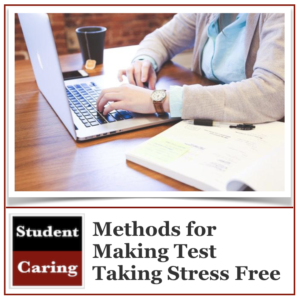 With the proliferation of standardized testing, course finals, and pop quizzes, it’s impossible to get through an academic stint without encountering a test of some sort. However, successful test taking requires more that just retaining course information long enough to pass exams.
With the proliferation of standardized testing, course finals, and pop quizzes, it’s impossible to get through an academic stint without encountering a test of some sort. However, successful test taking requires more that just retaining course information long enough to pass exams.
To be a successful test taker, you must develop a variety of skills and habits to optimize your brain and body for recall. Understanding how to use your memory in the most effective way possible is vital to recalling information in what may be a stressful situation.
These skills aren’t just academically beneficial either. While school may serve as a training ground, tests don’t stop with a diploma. Many jobs require entrance exams, and in particularly nasty cases, filling out a resume can feel more like a test than anything.
In those events, it pays (sometimes literally) to have developed a strong memory. Building these skills now will continue to serve you throughout your life. Besides, who doesn’t like the idea of having a sharp memory?
Daily Habits for Long-Term Memory
There are a number of habits that you can incorporate into your life to promote a healthy brain and agile memory. Try incorporating one at a time for a month or so until the change is sustainable. Work your way up to all of them!
- Exercise regularly. Not only is exercise good for you physically, it benefits the brain too! Strive for a minimum of two hours a week to see results, though more certainly doesn’t hurt.
- Eat well. This may seem like another obvious one, but your brain isn’t immune to the need for fuel. To promote good brain health in your diet, focus on dark green vegetables, healthy fats (olive oil, nut butters, and avocado), and fish.
- Get enough sleep. Make sure to give your brain enough downtime, as research suggests that sleep plays an important role in the consolidation of your memories — that is, storing the information in your brain for you to access later.
Successful Study Strategies
Studying is a very personal practice, and what works for one person doesn’t necessarily work for another. However, there are a few things you can do to maximize your hours hitting the books.
- Use a red pen for important phrases or concepts. Research has shown that the brain is more likely to recall words and information written in red than those written in black or blue.
- Use mnemonic devices and other memory tricks to retain information long term. You probably still remember the planets because of some variation of the “My Very Excellent Mother Just Served Us Noodles” mnemonic. Using acronyms, rhymes, organization, and imagery can help your brain to hold on to information longer.
- Take breaks. Cramming for a test or trying to get through all your work in one sitting may feel productive, but the brain actually functions better when given time to relax. Think of it like lifting weights in the gym — you rest in between sets for a reason.
- Study in the right light. Even if you’re studying in the evening, try to study in a well-lit area that mimics the bright light of midday. Individuals who study in well-lit areas are more alert and have increased productivity.
Tips for Test Day
Provided your studying has gone well and you’ve been keeping up with your good diet and exercise, all that’s left to tackle is the test. Follow these tips for a (hopefully) stress-free test day.
- Eat a strong pre-test meal. Whether it’s breakfast or lunch, try to make sure you have a balanced meal before your test. Avoid sugary foods, excess caffeine, or simple carbohydrates that may leave you hungry halfway through the test.
- Get enough sleep. Is this sounding repetitive yet? That’s because it’s seriously important that you practice good sleep habits and set yourself up for success by getting enough shut-eye — no one wants to take a test in the stressful brain fog of sleep deprivation.
- Chew peppermint gum. No, seriously. Studies show that peppermint can stimulate the brain and increase memory function. Plus, chewing gum may reduce the need to fidget and keep you from clenching your jaw. If you’re not a gum-chewer, load up on peppermint candy for your test day.
Don’t Forget to Breathe
By preparing yourself, you’re already one step ahead. When you know you’re training your memory to be more effective, as well as following good study practices and test day routines, you’re sure to walk into your next test feeling more confident. Not only that, but you’re developing skills that will serve you into the future too.

0 Comments